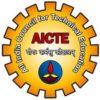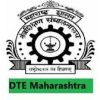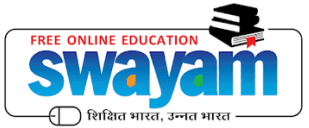- DTE Code : 6446
- MSBTE Code : 0993
- AICTE PID : 1-407330281
Name
Designation
Education
Contact Number
India, a developing country, is experiencing a complete change in technological trends due to the liberalization and globalization approach adopted by its government. Given the changes in the industrial policy of the government, it has almost become mandatory for the industries to give top highest priority to the quality of their total activities in addition to the quality of their products. Quality at competitive prices is the order of the day. There is a sea change in industrial culture at present. The engineering graduates entering into such establishments must at least be aware of such culture. The onus, of course, is on the technical institutions to provide such technical personnel who can be readily accepted by the industries.
The greater portion of demand for the skilled labor can be met with the outputs from the technical institutions in the country. Excepting a few premiere institutions, the quality of the output from the institution, by and large, is not up to the expectations of the end users. Many industries have certain reservations about the basic curriculum adopted and feel that state-of-the-art technology is not being taught. There is, in fact, an astonishing gap between what is expected out of an engineering graduate and the way he is being trained in the institutions. As a result, technical establishments are finding it difficult to get people who can satisfy their requirements. Although a lot has been said about the industry-institute interaction, what has been done in this direction is far below the desired level.
Technological advancement taking place around the world is at such an amazing pace, that it has become difficult even for industries to accommodate those changes at the same pace. Technical institutions cannot ignore the rate at which the technological scenario is changing. Perhaps, it is now and never before, that the industries and institutions in India have started realizing the fact that they can no longer live in isolation. Instead, they have to depend on each other for their growth and betterment. There is a growing feeling that the institution must become a bridge between the ever-changing industry and technology. It is also felt that the industries must remove all their apprehensions and develop an understanding with the institutions to enable a meaningful interaction between the two. At the same time, the institutions must come out of their inertia and strive hard to lend a helping hand to the industries. It is important to note that the task of imparting practical training to engineering graduates and engineering teachers is not an exclusive job of institutes alone. Industries must shift their stand from being customers alone to institutes and become partners in the practical education of students and faculty.
- To interact with R&D Organizations: Intending to produce an ample number of researchers, IIPC encourages students and faculty members to participate in different events organized at National/International levels. It also invites researchers from different domains to share their opinions and research with all.
- To develop a strong bond with Industry: IIPC encourages students to undergo Summer Internship Programs (SIP) and Industrial Case Study (ICS) to get the exposure to latest trends followed by Industries.
- To enhance Industrial exposure for students and faculty: Regular site visits are arranged by IIPC for the students from different engineering programs to provide them exposure to adopting innovative ways for the creation of new products implemented by the industries.
- To bring about MOU and Agreements: IIPC attempts to attract the industrial and research organizations on the campus to showcase the strength of students by conducting National/International events, workshops, conferences, etc.
- Exchange of Experts between the Institute and Industry: TGPCET encourages its faculty members to attend the Short Term Training Program (STTP) to gain and enhance their knowledge and share it with the students. It also recruits senior or retired personnel to share their knowledge and experience with the students.
- To improve the quality of technical education to meet the needs of the industry: IIPC hosts department Guest Lectures to make students aware of the needs of the industry. The Guests suggest different ways to be students for withstanding the requirements of the industry expected of them.
- Use of Industrial labs by college
- Visiting faculty from Industry
- Industrial training assistance
- Expert Guest Lectures
- Industrial visits and exposure
- Providing labs for Industrial Training
| Sr. No | Organization/Industry with which MoU signed |
|---|---|
| 1 | MIDC Industries Association, Nagpur |
| 2 | ButiBori Manufacturer Association, Nagpur |
| 3 | Dr.Panjabrao Deshmukh Krishi Vidyapith (PDKV),Akola |
| 4 | Vignan's University, Guntur, Andhra Pradesh |
| 5 | KEC Tarining Centre, Buttibori, Nagpur |
| 6 | Ambuja Cement Ltd., Nagpur |
| 7 | Duraweld Metsys Pvt. Ltd.Hingna, Nagpur |
| 8 | Jayaswal Neco Industries Ltd.Hingna,Nagpur |
| 9 | Shree Vagmi Centre for Testing Excellence Pvt Ltd, Bangalore |
| 10 | Unitech Engineering Services, Nagpur |
| 11 | Delastreams Solutions Pvt. Ltd., Nagpur |
| 12 | Divyani Electropower, Nagpur |
| 13 | Solar Service System, Nagpur |
| 14 | NLT Info Tech Pvt. Ltd., Nagpur |
| 15 | Programming Hub Nagpur |
- Industry institute partnership cell (IIPC) under this scheme to support different industries at various platforms like Industrial training, Seminars, Symposium, and consultancy work, arrangement of different Management Development Programmes and Faculty Development Programmes for solving industrial problems.
- IIP Cell of college received grant in aid from the AICTE under the IIPC Scheme. Funds to meet recurring expenditure like manpower (contractual or regular staff-provided with Honorarium), travel, administrative-overhead programs/event expenses & contingencies is Rs 5 Lakhs per year on project basis (Maximum time for a project having 5 years)and a one time grant of Rs 5 Lakhs for Officer Setup.
- An Advisory board is functioning under the chairmanship of Director Academy to control its activities.
- Strong Industry-Institute interface is developed through this cell.
- The cell provides connectivity to the industries in areas like OJT, Projects, and helps the students in implementing their theoretical knowledge to practice.
- Recognized industries like Indian Oil Corporation, Lafarge and the like get Consultancy benefits from IIPC and also undertake activities like undergoing industrial training program at various Industries and undertake industrial projects from Govt Organizations like MSEB, BSNL , Indian Railway, DRDO , ISRO etc.
- Seminars and workshops are regularly being conducted under the IIPC. The objective of such events and workshops is to provide maximum industry exposure to the students. IIP Cell has actively established strong liaisons with the various private companies and PSUs.
| Sr. No. | Name | Department | Advisory Board | Designation |
|---|---|---|---|---|
| 1 | Dr. P. L. Naktode | Head of Institution | Principal | Chairman |
| 2 | Dr. Pratik Ghutke | Electrical Engineering | R & D Coordinator | Member |
| 3 | Dr. Vijay Talodhikar | Mechanical Engineering | HoD | Member |
| 4 | Prof. Anup Bagade | Biotechnology | HoD | Member |
| 5 | Prof. Kalpit Kaurase | Aeronautical Engineering | Faculty Member | Member |
| 6 | Mr. P. M. Vasu | Director CMS IT Solutions Pvt. Ltd. Nagpur | Industry Representative | Member |
| 7 | Mr. Anurag Tiwari | Executive officer Head, Vidarbha, CII, Nagpur | CII Representative | Member |
| 8 | Mr. Virendra Dehadrai | Director Aquades Structural Consultants Pvt. Ltd. Nagpur | Entrepreneur | Member |
| 9 | Dr. Kailash Wasewar | Professor, Chemical Engineering, VNIT, Nagpur | R & D Institutions Representative | Member |
| 10 | Dr. Nitin Chore | Training and Placement Cell | Training and Placement officer | Member |
| 11 | Dr. Yogesh Mahulkar | Mechanical Engineering | IIPC Chief Coordinator | Convener |

IIPC Cell has organized an Internship Induction program for 3rd and 5th-semester students

Dean of Training and Placement Dr. N. M. Chore explains the process of applying for an Internship

Prof. Kunal Sawalakhe explains the objectives of an Intern and the expectations of an Employer.













